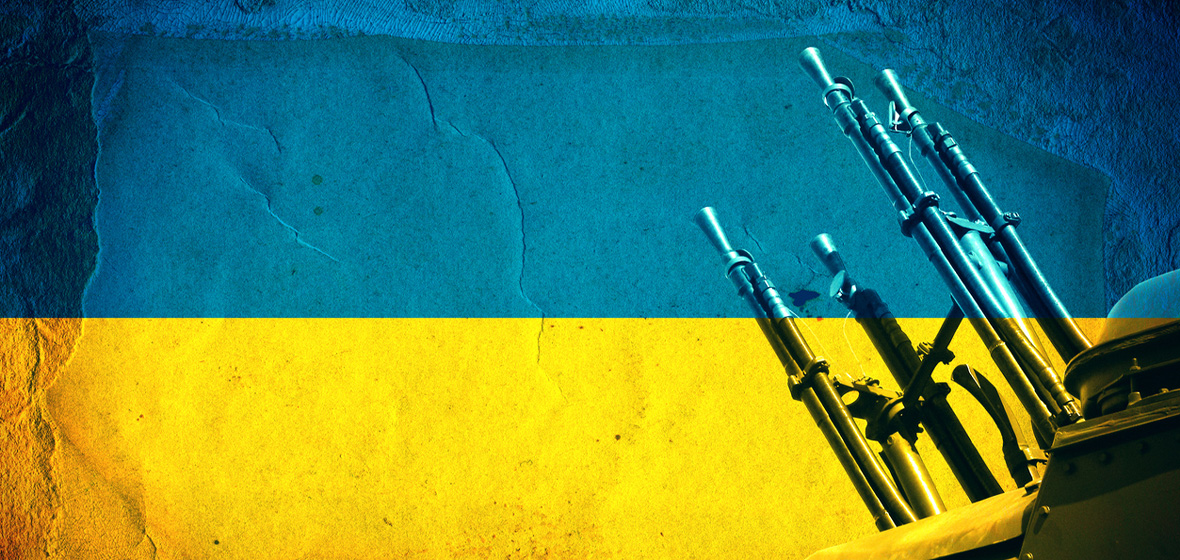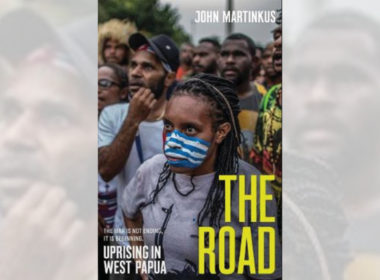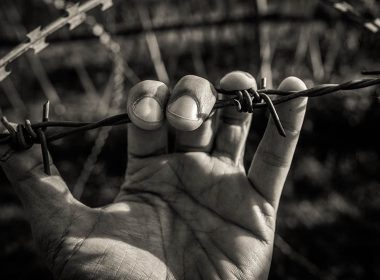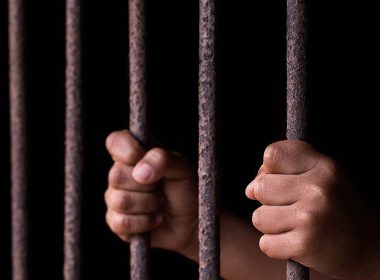The Independent International Commission of Inquiry on Ukraine recently reported that Russian authorities have committed a wide range of violations of international human rights law and international humanitarian law in various regions of Ukraine, and many of these amount to war crimes.
The war crimes include wilful killings, attacks on civilians and energy-related infrastructure, wilful killings, unlawful confinement, torture, rape and other sexual violence, as well as unlawful transfers and deportations of children.
What are the limitations of international justice in bringing suspected war criminals to trial? And what can the practical outcomes of any war crimes investigations be for everyday citizens who have been the victims of crime?
In seeking to answer these questions, LSJ spoke to Dr Jacqueline McAllister, an expert in international relations, human rights and civil wars. Since 2014, McAllister has been Associate Professor of Political Science at Kenyon College in Ohio. Her research into the role and effectiveness of international justice efforts in ongoing conflicts has taken her from the Balkans to Nigeria. McAllister’s work has featured in leading scholarly journals and foreign policy magazines, and she has appeared as a guest on global podcasts and panels. McAllister has also served as an expert panellist at a UN-sponsored conference on the legacy of the Yugoslav Tribunal. Next year, she will be working for the US Department of State’s Office of Global Criminal Justice.
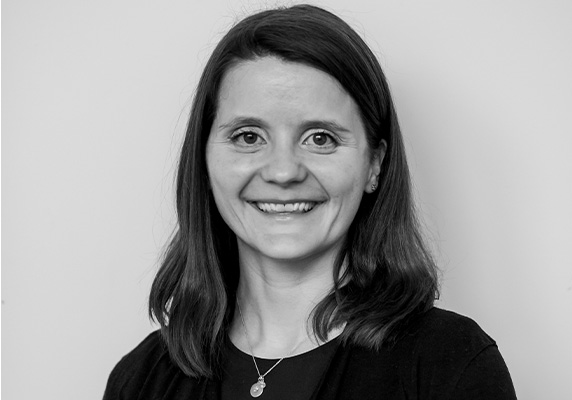
McAllister was asked to share her views on the likely time frame for a tribunal on Russian war crimes in Ukraine. LSJ also asked her to comment on the fundamental changes required to ensure international justice systems are more efficient and effective, and powerful enough to deliver meaningful outcomes for victims, and for civilians of all countries engaged in war.
McAllister says, “In my experience the people who suffer the most are survivors and victims who have their own reaction to these tribunals. It’s rare that everyone is entirely happy with them, ever. From the tribunals I studied, civilians think of these as fig leaves for inaction on the part of the international community – with situations like Darfur, and even when the Yugoslav tribunal was set up, there was a view that it was because the UN Security Council wanted to look like it was doing something; but there’s also a view that these tribunals are symbolic of the world paying attention.”
In terms of the likelihood of Russia being on trial for war crimes (more than 74,500 atrocities have been reported in Ukraine since Russia invaded, according to the prosecutor general’s office in Kyiv), it is nearly impossible to do so while conflict is still taking place.
McAllister clarifies: “When conflicts are still taking place, it’s hard for tribunals to investigate and gather evidence, or access victims and crime scenes that are needed to prosecute crimes. Atrocity crimes have a pretty high standard of proof, so you need good evidence and witnesses to effectively prosecute them. The [Hague-based] International Criminal Court (ICC) has a zero-fatality policy, so assuming they even have security on the ground, it’s still a very dangerous situation, and oftentimes those who are providing security are the ones you want to investigate, so it’s hard for investigators and prosecutors to do their work.”
‘When conflicts are still taking place, it’s hard for tribunals to investigate and gather evidence, or access victims and crime scenes that are needed to prosecute crimes’
McAllister says that prosecutorial support is vital, and that the member states of the ICC therefore need to be willing to cooperate with requests and to provide military intelligence or security in order for an arrest warrant to be acted upon in the situation of an alleged criminal fleeing prosecution. At present, trials are taking place in Ukraine where local justice teams are supported by international legal experts.
“I know the ICC prosecutor has been to Ukraine [several] times, and there’s a team of prosecutors and investigators in Ukraine collecting evidence, but it’s hard to do. In Ukraine right now, they’re prosecuting people and gathering evidence, but they’re getting the lower-level perpetrators who are directly doing the killing. It takes time to build up the evidence to go for the leaders who play a role in the planning and coordination. In Yugoslavia, the US was able to provide military evidence essential to prosecute cases, but prosecutorial support can be inconsistent.”
When forecasting what may happen in regard to bringing Russia’s leaders to trial, including Vladimir Putin, for war crimes, McAllister says it is necessary to remember that almost nobody believed the International Criminal Tribunal for the former Yugoslavia (ICTY) would ever manage to try Ratko Mladic or Slobodan Milosevic. Yet this happened. Though it may take decades, McAllister remains hopeful that Putin and others in the Russian leadership will eventually be tried.
She says, “ICC member states have a legal commitment to cooperate with the court. Ukraine is getting a lot of support from the European Union to trial war crimes in their own courts and support for prosecutions within Ukraine, in addition to receiving training and funding from international legal experts to figure out its approach. There is support for broader efforts to prosecute Russia.
“The ICC has joined a Joint Investigate Team with Lithuania, Poland, Estonia and Ukraine to support trials in and outside of Ukraine. Whether that response gets the big fish in the dock is another question.”
At the end of 2017, the ICTY found former Bosnian Serb General Ratko Mladić (“the Butcher of Bosnia”) guilty of genocide and crimes against humanity.
As McAllister recalls, “The ICTY indicted Ratko Mladić just months before the Bosnian War ended. Following hostilities, Mladić fled to Belgrade. Serb authorities subsequently shielded him from prosecution for almost 16 years. Mladić proved even more adept at evading arrest than Serbian President Slobodan Milošević, who landed in the dock a decade earlier.”
The first global criminal court
The ICC formally became the first global, permanent criminal court on 1 July 2002, based on the Rome Statute, its founding treaty. The prerogative of the ICC is to prosecute individuals, including senior political and military leaders, for war crimes, crimes against humanity and genocide. As McAllister points out, there are two major obstacles marring the work of the ICC. Firstly, it is a treaty organisation that requires state consent to operate. That is denied the ICC by many powerful nations and territories, including the US, Russia, China and India, and regional powers such as Turkey, Egypt, Israel, Saudi Arabia, Pakistan and Indonesia. Secondly, the ICC only has jurisdiction over the territory and nationals of its member states, and only under circumstances where they are unable or unwilling to prosecute international crimes in their own court systems.
McAllister is interested in the new push for another body, in addition to the ICC, to pursue criminal action against Russia’s leadership.
“The ICC has a very robust support for investigations and prosecutions in Ukraine. There’s also been a push to create a whole new ad hoc tribunal to go after Russia and the Russian Federation for the crime of aggression. The European Union, Parliamentary Assembly of the Council of Europe, United States and NATO are in support of it, which would create a whole new tribunal designed to go after the leaders of this war, people like Putin, for the crime of aggression.”
British lawyer Karim Asad Ahmad Khan KC has served as Prosecutor of the International Criminal Court since 2021.
“Karim Khan threw his hat in the ring to get Putin first,” McAllister says. “He did so in a really smart way, because a lot of the challenge in going after someone like Putin is that it’s hard to link him to crimes. He’s picked the charges – deportation and forceable transfer of children – because you don’t need to have direct evidence. They are charges that could really stick. It’s his way of saying ‘the ICC wants Putin first’.”
Patience required until justice is served
On 17 March 2023, the Pre-Trial Chamber II of the International Criminal Court issued warrants of arrest for Vladimir Vladimirovich Putin and Ms Maria Alekseyevna Lvova-Belova (“Commissioner for Children’s Rights in the Office of the President of the Russian Federation”). Both are allegedly responsible for the war crime of unlawful deportation of population (children) and that of unlawful transfer of population (children) from occupied areas of Ukraine to the Russian Federation.
In terms of seeing a trial taking place, let alone justice being served, McAllister advises patience.
“I think it’s not likely right now that Putin would land in the ICC dock anytime soon, but it’s not impossible. The 123 members [of the ICC] have an obligation to arrest him if he sets foot on their territory. The BRICS (Brazil, Russia, India, China, South Africa) Summit is coming up in South Africa in August and it will be interesting to see what South Africa does. In the past, Omar Al Bashir, the Sudanese President, travelled there and he had to leave pretty quickly because groups on the ground there went to the courts and received a ruling that South Africa has a legal obligation to arrest him, so he got out in time to evade arrest.”
The most likely scenario, she suspects, is that it will be a turning of tides within Russia that leads to a future arrest and trial.
“If history is a guide, over time people in Russia will turn on him and arrest him on something like corruption and once he loses popularity, they’ll hand him over to the ICC.
“As for pursuing him for the crime of aggression, it will be a monumental undertaking to establish it and then get their hands on these top leaders in Russia. Nobody will invade Russia to get these people, so the tables have to turn on them within Russia. It could take decades, like it did with the Yugoslav example. Nobody thought those leaders would get turned over, but it happened.”

